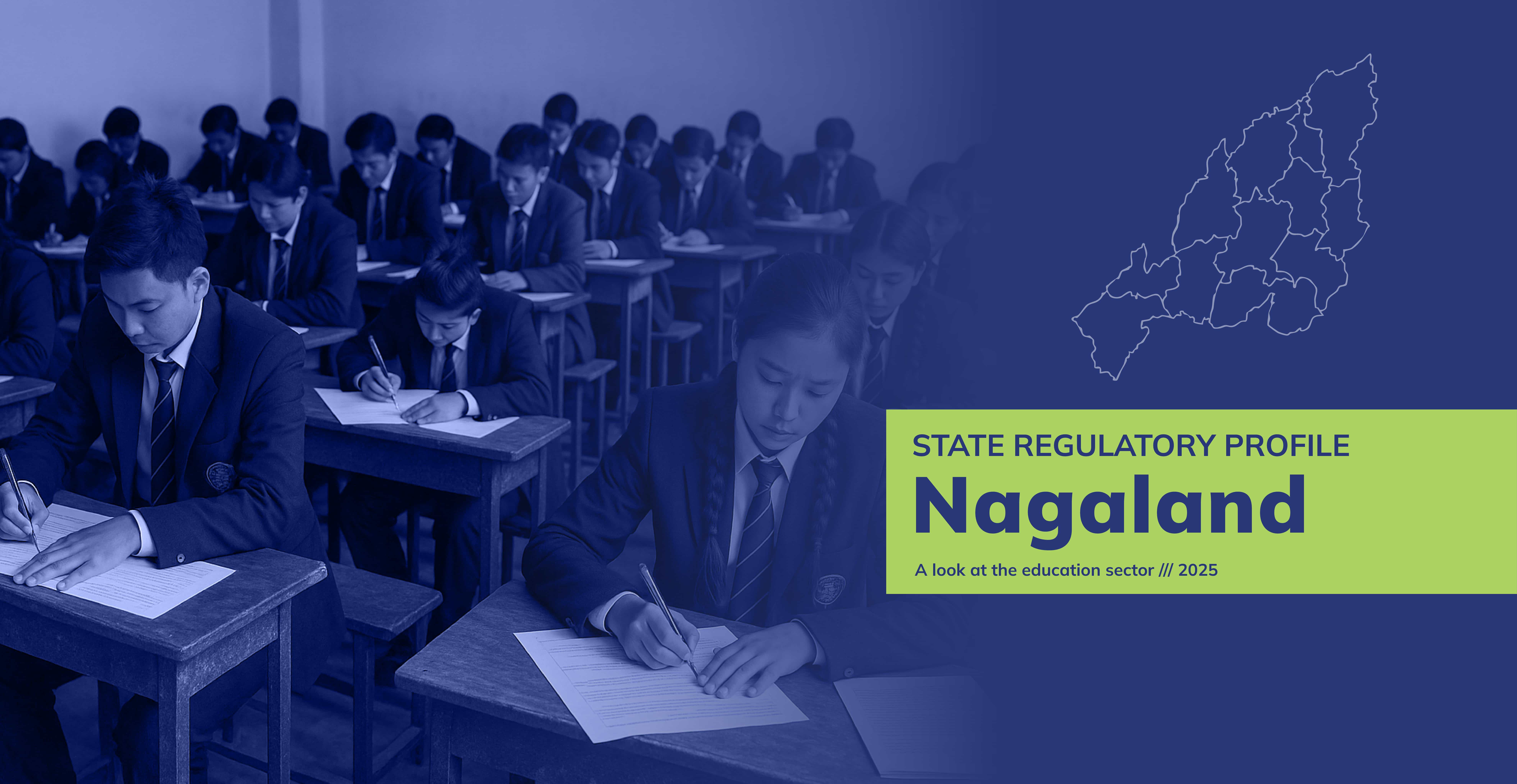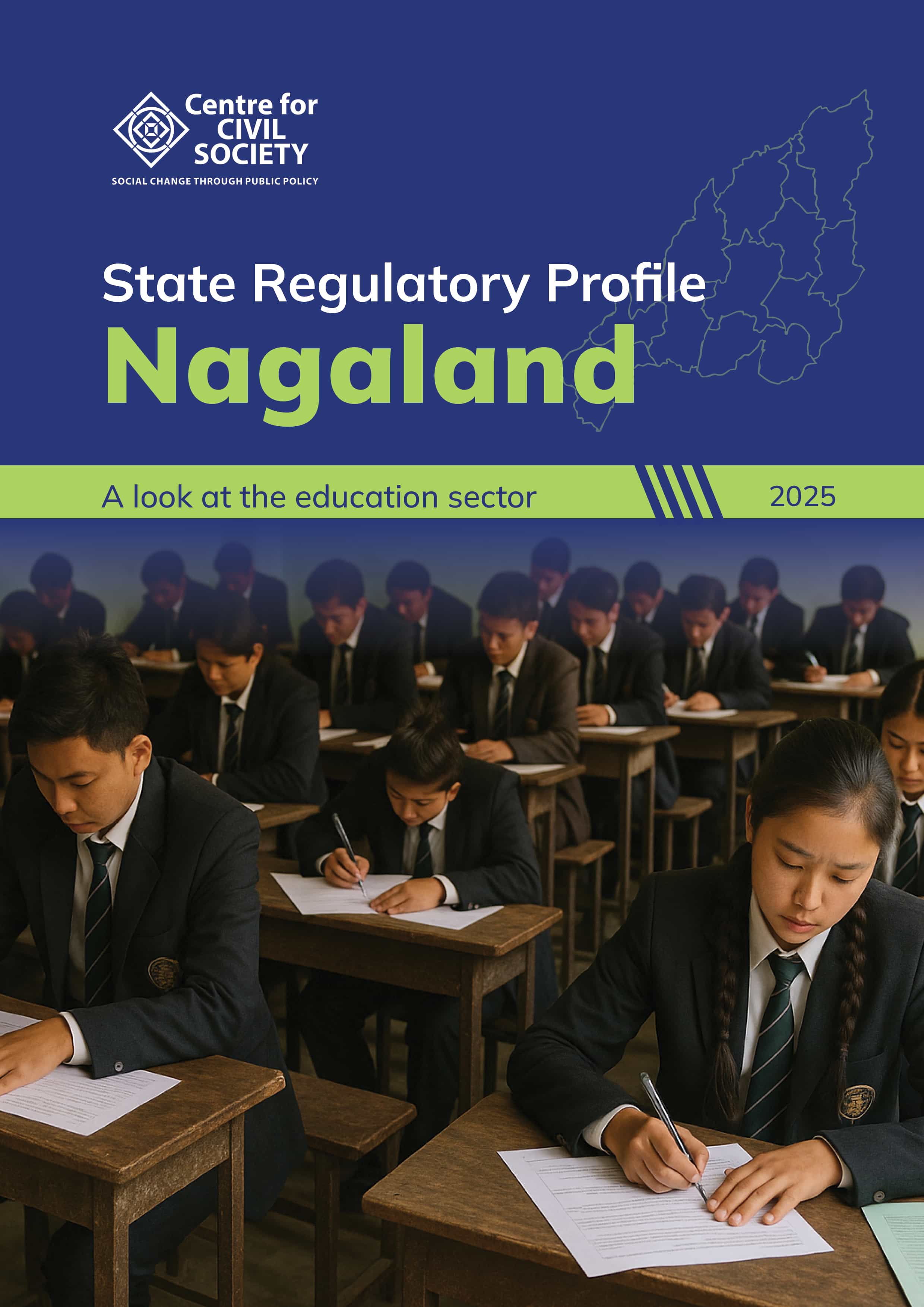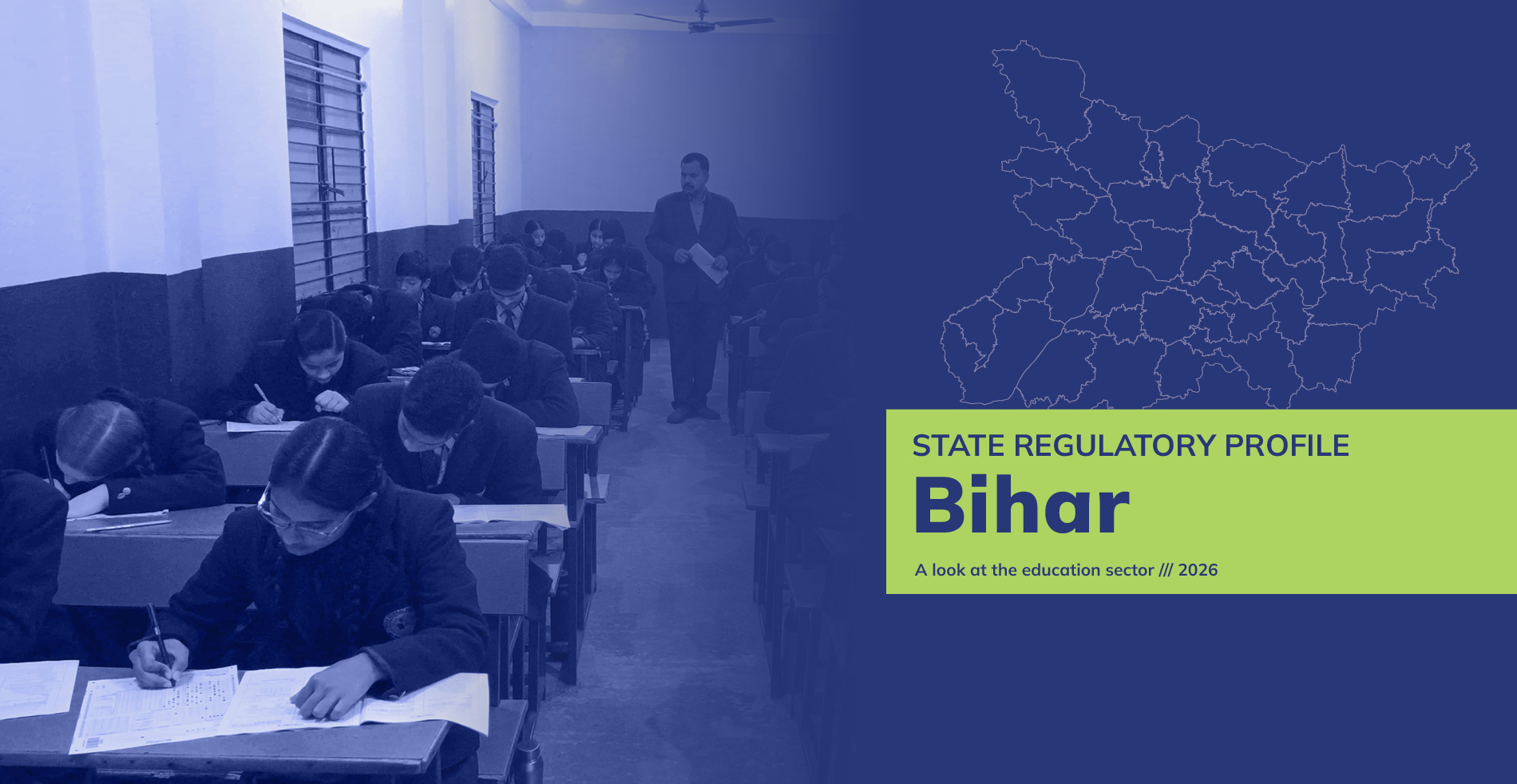Nagaland’s school education system is at an inflection point, balancing a legacy of community-based governance with the structural demands of modern education policy. The private sector now serves nearly two thirds of school-going children, while government schools face declining enrollment despite rising teacher numbers. This divergence signals a trust and performance deficit in the public schooling system and highlights the urgent need for regulatory clarity, accountability, and capacity strengthening. The report presents a comprehensive analysis of the State’s K-12 ecosystem, covering legal frameworks, institutional roles, regulatory enforcement, and stakeholder experiences. It traces the evolution from Pre-RTE community-driven oversight to the current arrangement in line with the Right to Education Act and the National Education Policy 2020. While Nagaland has made progress in expanding access, improving infrastructure, and promoting community participation through Village Education Committees, systemic gaps persist in teacher deployment, learning outcomes, school recognition procedures, and grievance redressal mechanisms.
Key data trends reveal declining student numbers in government schools, growth in private schooling, uneven pupil-teacher ratios, and limitations in digital infrastructure. Regulatory responsibilities are shared across multiple agencies, including the Directorate of School Education, NBSE, and SCERT, leading to fragmented compliance and overlapping mandates. Focus Group Discussion with School Leaders shows a growing preference for private schooling, administrative difficulties navigating reimbursements under RTE, and strong support for shifting towards a Direct Benefit Transfer model.
The State School Standards Authority, envisioned under NEP 2020, emerges as a critical reform pathway. A dedicated and autonomous regulatory body could reduce conflicts of interest, streamline oversight, strengthen transparency, and promote a shift from compliance-driven control to performance-oriented support. Clear legislative drafting, coherent institutional mandates, and structured grievance systems are necessary to ensure fairness and quality across both government and private schools. It is found that there is conflict in legislative provisions of NBSE and RTE Rules over the school management committee and suggested encouraging for-profit education models in the state.
Overall, the report advocates for a balanced approach that empowers educators, protects student interests, reduces administrative burdens, and enhances school performance through transparent standards, community partnership, and policy innovation. Establishing the SSSA, reforming recognition and inspection processes, and adopting incentive-based governance can help Nagaland build an equitable and future-ready school system aligned with national reforms and local needs.



